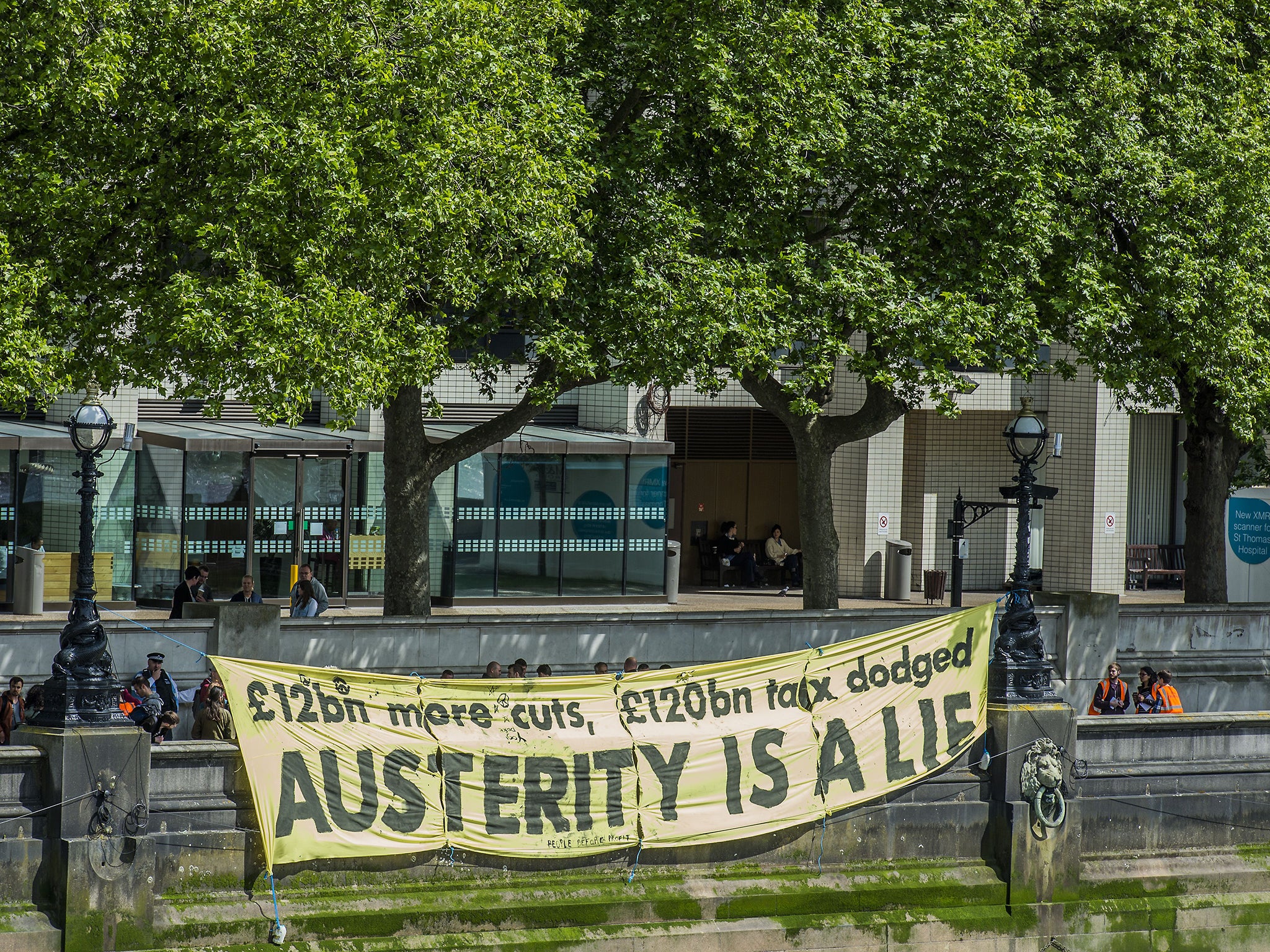George Osborne may need to impose more austerity, Institute for Fiscal Studies warns
Think-tank says the Chancellor’s charter is ‘seriously flawed’ for managing finances

George Osborne’s new Charter for Budget Responsibility is seriously flawed as a rule for managing the public finances, according to experts from the Institute for Fiscal Studies (IFS).
The think-tank also warned that the Chancellor may soon be faced with an invidious choice between suspending the charter – which requires him to run a budget surplus by the end of the decade – and imposing yet more painful austerity on the country.
In its annual “Green Budget” the IFS said that Mr Osborne’s new mandate suffers from “severe limitations” because it could require him to make “sharp adjustments” in public spending in response to forecasting errors by the Office for Budget Responsibility (OBR). “It could require big tax rises or spending cuts with very little notice … that must be sub-optimal,” Carl Emmerson, deputy director of the IFS, said.
The think-tank calculates that there is a roughly one-in- four chance Mr Osborne will need to implement in-year spending cuts or tax rises in 2019-20 in order to achieve a surplus in that year.
Echoing a complaint made by other independent economists, the IFS also lamented the fact the new fiscal rules, unlike the regimes under the Coalition and the previous Labour government, make no allowance for productive state capital spending.
The charter obliges the Government to put the budget into surplus by 2019-20 at the latest and to keep it there in “normal times”, defined as when GDP growth is higher than 1 per cent.
The IFS said it was “odd” the charter failed to factor in the cost of credit available to the Government. Long-term interest rates on offer for the Government are currently close to historic lows and many economists have criticised Mr Osborne for failing to take this golden opportunity to upgrade the country’s infrastructure through borrowing.
In his budget speech last year Mr Osborne said his fiscal charter was “sensible, pragmatic and it keeps Britain secure”. It was passed into law by the Commons last October by 320 to 258 votes, after 21 Labour MPs abstained, in defiance of a three-line whip from their party leadership. The shadow Chancellor, John McDonnell, had initially said he supported the charter, before changing his mind.
The OBR unexpectedly gave the Chancellor more fiscal room at last November’s Autumn Statement, when it upgraded its forecasts for tax revenues over the coming four years. But the IFS said the pendulum could well swing the other way in the coming years, identifying several potential threats to the health of the public finances forecasts. These included weaker wage growth than expected and falls in share prices, both of which are likely to depress tax revenues. The FTSE 100 shares benchmark is down almost 9 per cent since the beginning of the year.
The IFS said the Chancellor still needed to find around £8bn to pay for an increase in the higher-rate income-tax threshold to £50,000 by 2019-20, a promise made in the Tory election manifesto last year.
“With promises on tax cuts to keep and pay for and pressure on revenues from a number of taxes there may be more tough decisions to come” the director of the IFS, Paul Johnson, said. “How he [Mr Osborne] responds to any further unpleasant fiscal surprises may ... come to define his period as Chancellor”.
The Treasury declined to comment on the IFS criticism of the charter. But a spokesperson said: “There may be bumpy times ahead – so here in the UK we must stick to the plan that’s cutting the deficit.”
IFS report: Osborne's obstacles
The first problem the IFS identified was an unexpected weakness of average wage growth. A 1 per cent shortfall by 2019-20 could cost £5bn in lost income tax and National Insurance revenues, it said. The collapse in share prices could also cost HMRC £2bn in lower than expected capital gains tax receipts.
The IFS also said that the cost of the Chancellor’s £8bn pledge to cut income tax by the end of the decade had not yet been factored in by the Office for Budget Responsibility.
The current projections for tax revenues also rely on Mr Osborne increasing fuel duties up in line with retail price inflation – something he has found it politically impossible to do this since 2011.
Another fiscal headache for the Chancellor is a £3bn higher National Insurance pay bill for the public sector by 2016-17, required as a result of changes on pension contribution rules.
Subscribe to Independent Premium to bookmark this article
Want to bookmark your favourite articles and stories to read or reference later? Start your Independent Premium subscription today.

Join our commenting forum
Join thought-provoking conversations, follow other Independent readers and see their replies